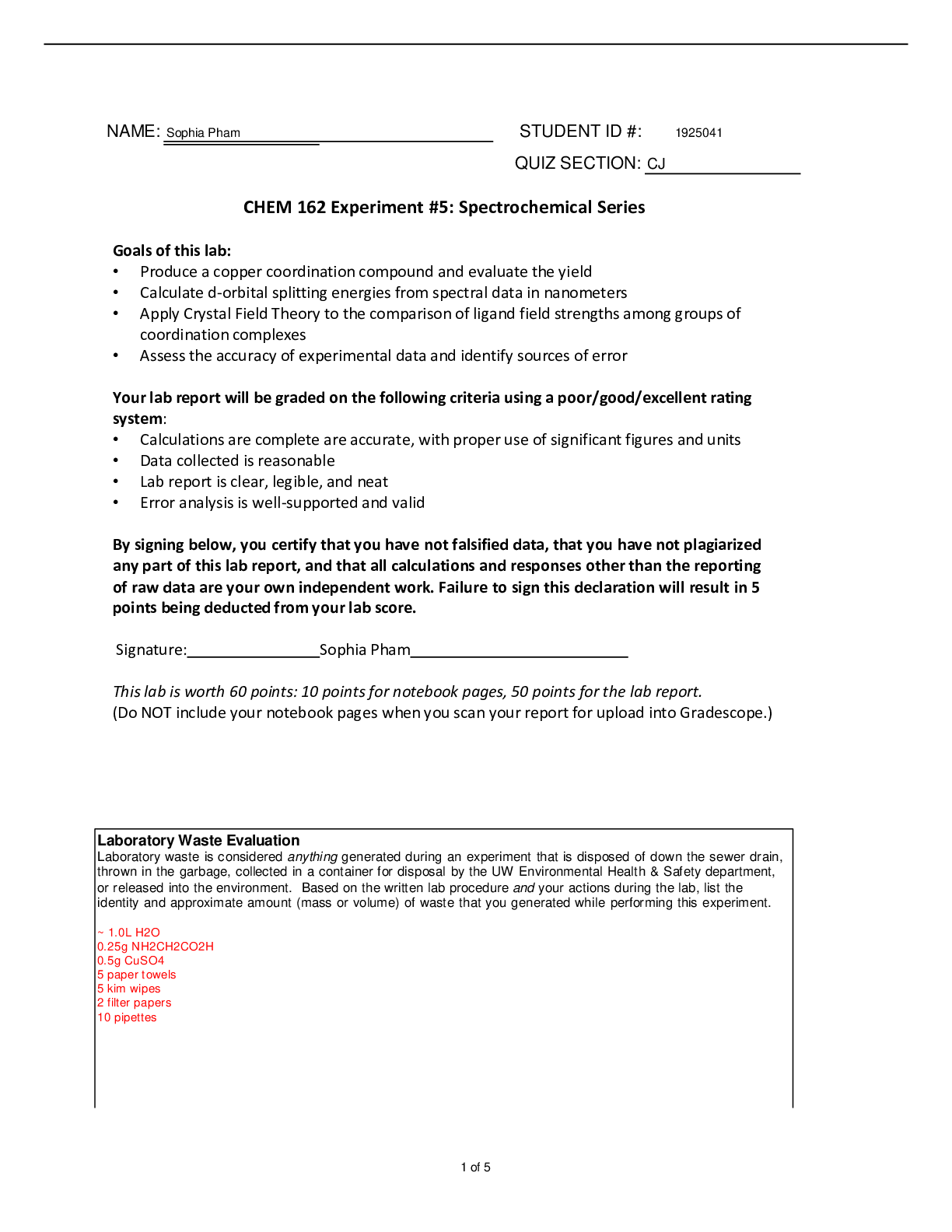OL Lab 5: Fluid balance, acid base balance and water balance
Learning Objectives:
• Identify the functions and the location of the major fluid compartments of the body
• Explain the regulation of water balance in orde
...
OL Lab 5: Fluid balance, acid base balance and water balance
Learning Objectives:
• Identify the functions and the location of the major fluid compartments of the body
• Explain the regulation of water balance in order to maintain homeostasis
• Identify the proportions of electrolytes found in the plasma, interstitial fluid, and
intracellular fluid compartments of the body and state their functions.
• Describe the major electrolytes in the body, and state their role in electrolyte balance.
• Identify the different pH ranges in the body and understand the compensatory
mechanism involved to maintain acid-base balance.
Part 1:
1.1 Complete the chart to locate major fluid compartments of the body and state their functions. (3 points)
Compartments Function
A Solids Male body is 60% fluid, Female is 55% fluid. Barriers separate these fluids into a
number of fluid compartments.
B Intracellular Fluid Fluid within each cell, which accounts for about two-thirds of total body fluids, meaning majority of body fluid is located
inside the cells
C Interstitial Fluid Makes up 80% of
extracellular fluid (26.6% of total body fluids).
D Extracellular Fluid Accounts for the remaining one third of total body fluids. Two main categories of extracellular fluid: Blood
plasma and interstitial fluid.
E Blood Plasma Found within the blood vessels. Clear, yellow fluid containing dissolved organic and inorganic molecules.
Accounts for 20% of total
Extracellular fluid. (6.6% of total body fluids.)
1.2 Identify the physiological stimulus and responses that regulate water balance in the body. (5 points)
- A: Dehydration this occurs when water intake is below the level required to balance
water output. Lack of water leads to dehydration. Thirst is a specific mechanism
occurring during dehydration, when fluid gain is needed to maintain homeostasis.
Dehydration leads to the next section which is B.
- B: Because of dehydration, due to the decrease in blood volume and pressure
activation of renin-angiotensin-aldosterone system. Renin is released via, a number of
intermediary steps.
- C: Osmolarity of interstitial fluid and extracellular fluid is usually
equal. When the osmolarity of blood plasma and interstitial fluid increases above a
certain point, osmoreceptors in the hypothalamus are stimulated and send nerve
impulses to the neurohypophysis, triggering the secretion of ADH into the bloodstream.
ADH acts on the kidney by increasing the water permeability of principal cells lining the
collecting ducts.
- D: Dryness of the mouth and pharynx is detected by sensory receptors.
- E. This increased drive from the hypothalamic nerve center creates the conscious
perception of thirst.
- F: Thirst ultimately leads to the behavioral activity of drinking. This homeostatic
mechanism serves to increase blood volume, decrease blood osmolarity, increase
hydration levels in the oral mucous membranes, all of which reduce dehydration and
restore normal water balance. This also forms a negative feedback loop, with the
response leading to reduction in stimulus.
.....................................................................continued................................................................................
[Show More]
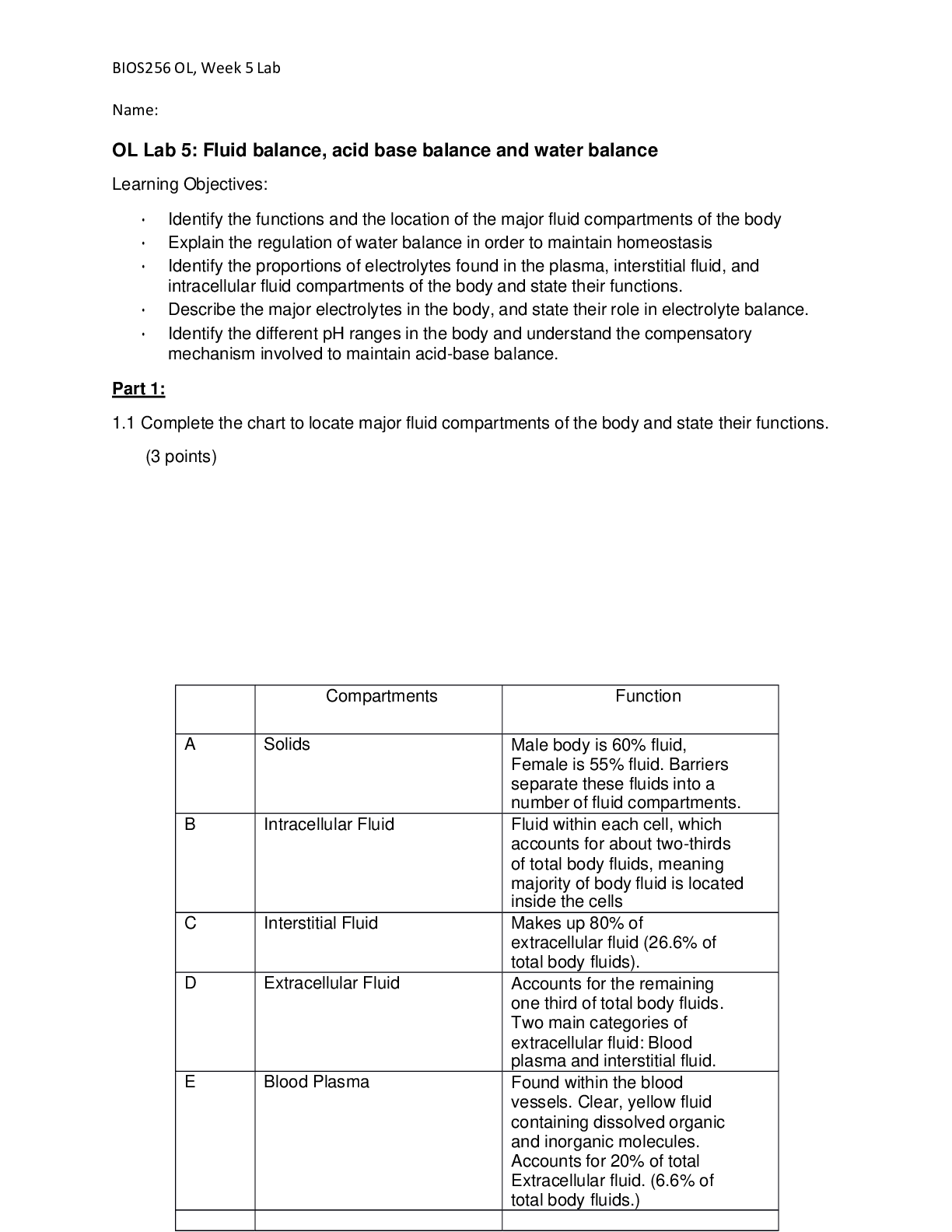



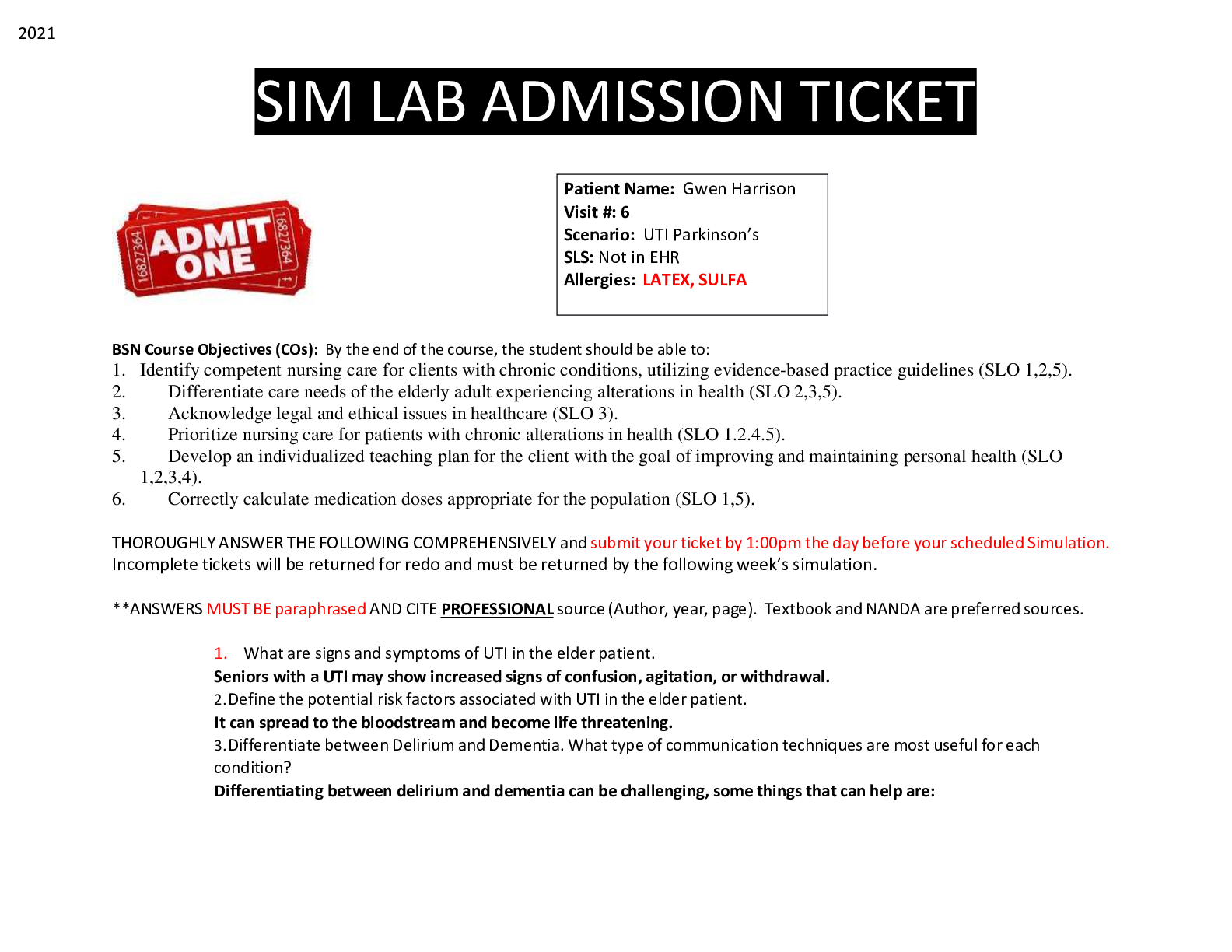
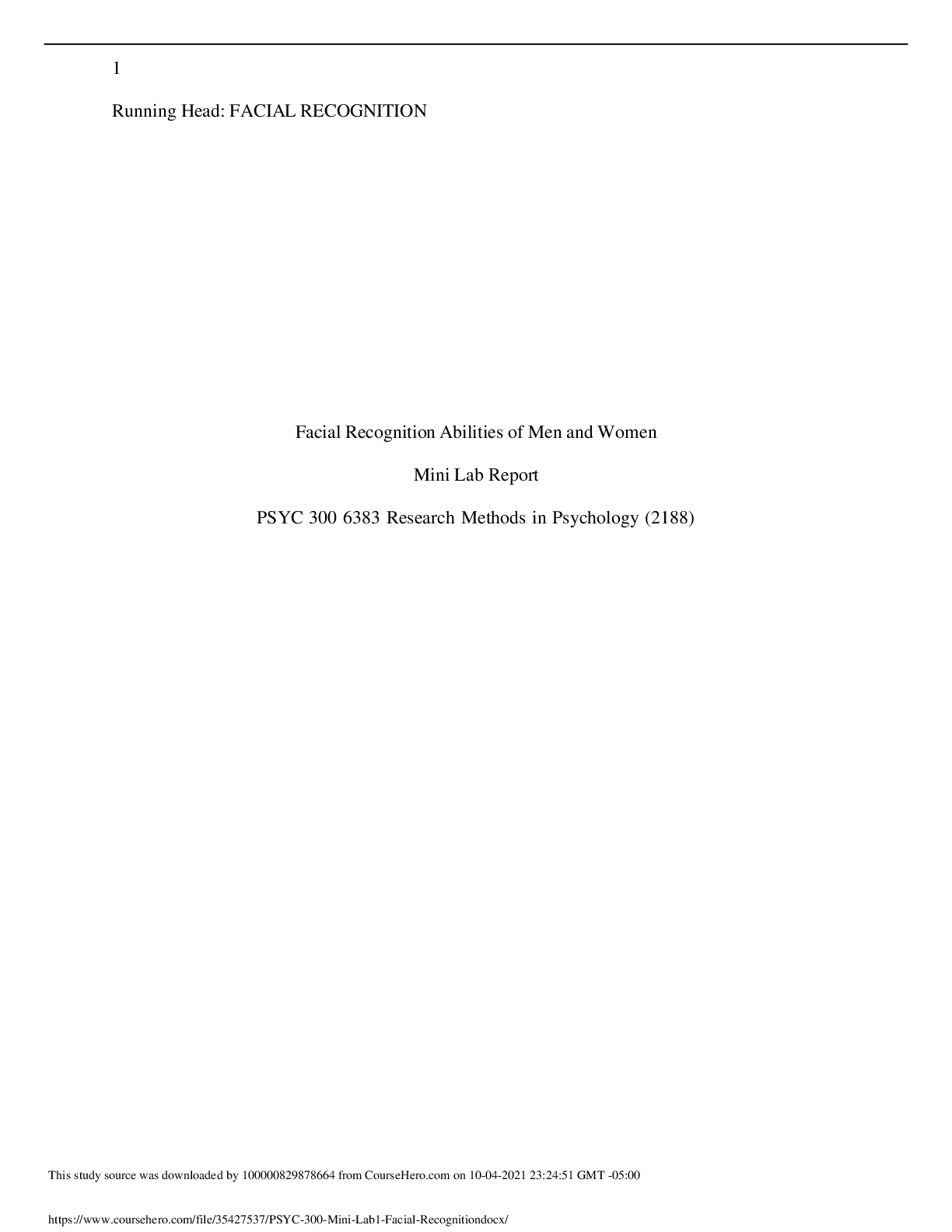
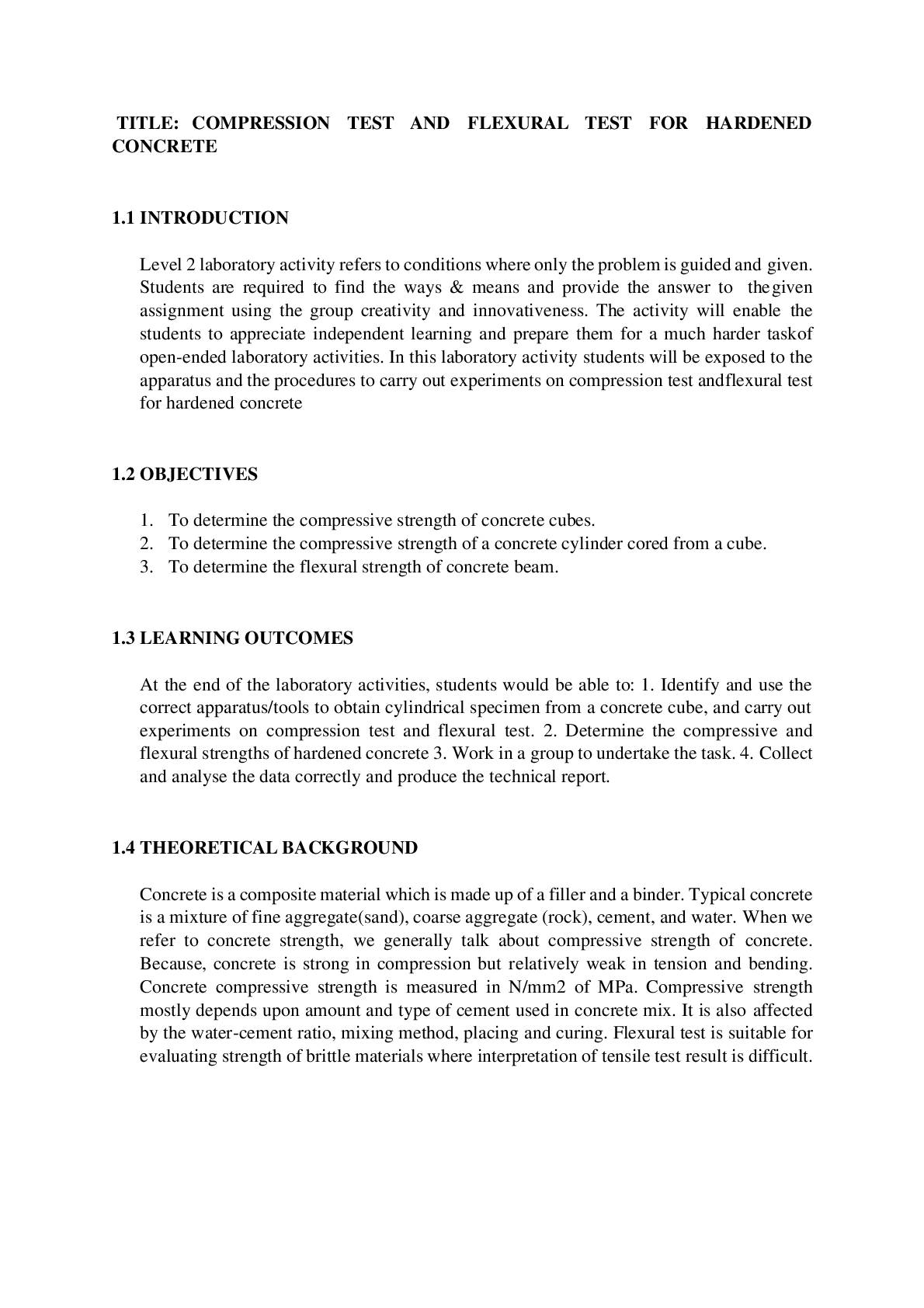


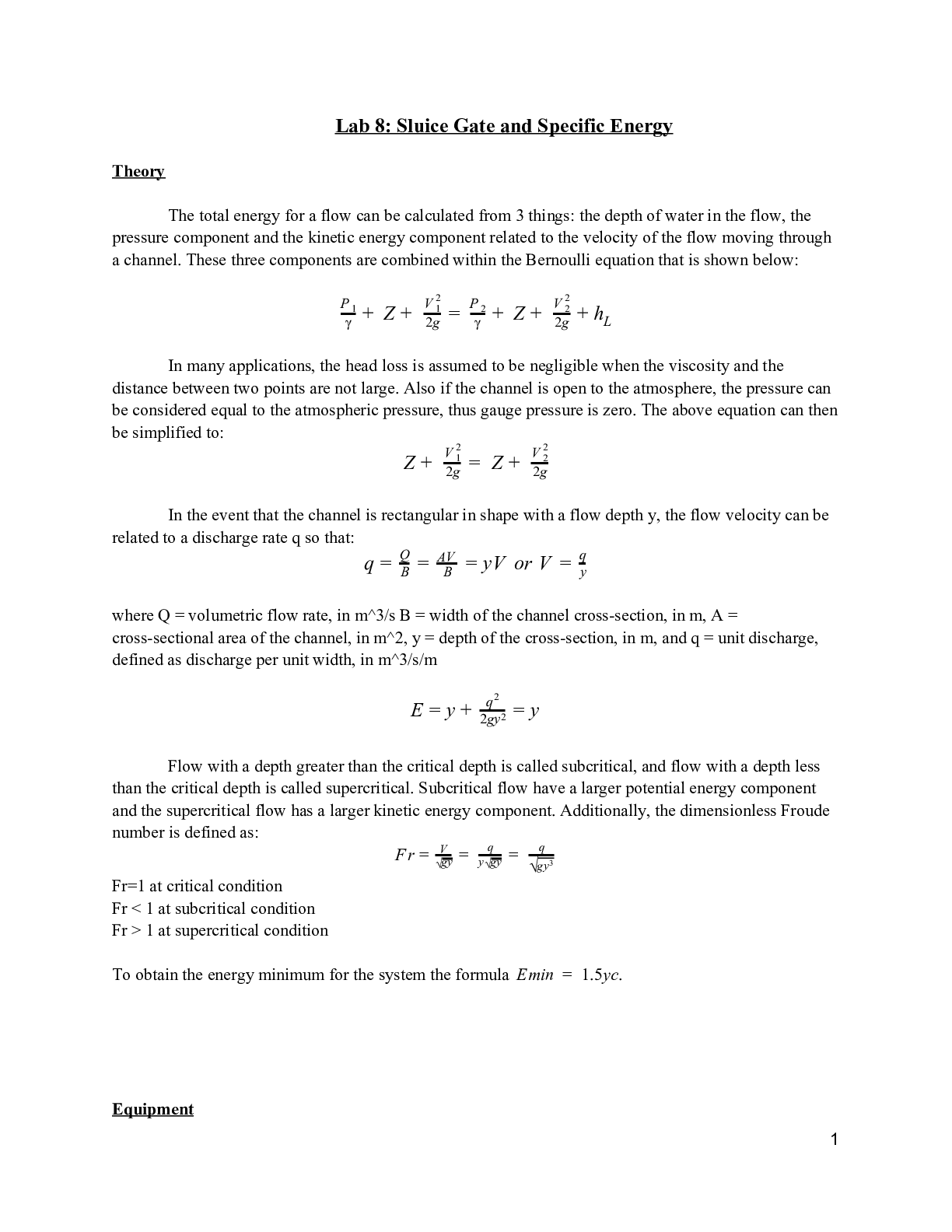
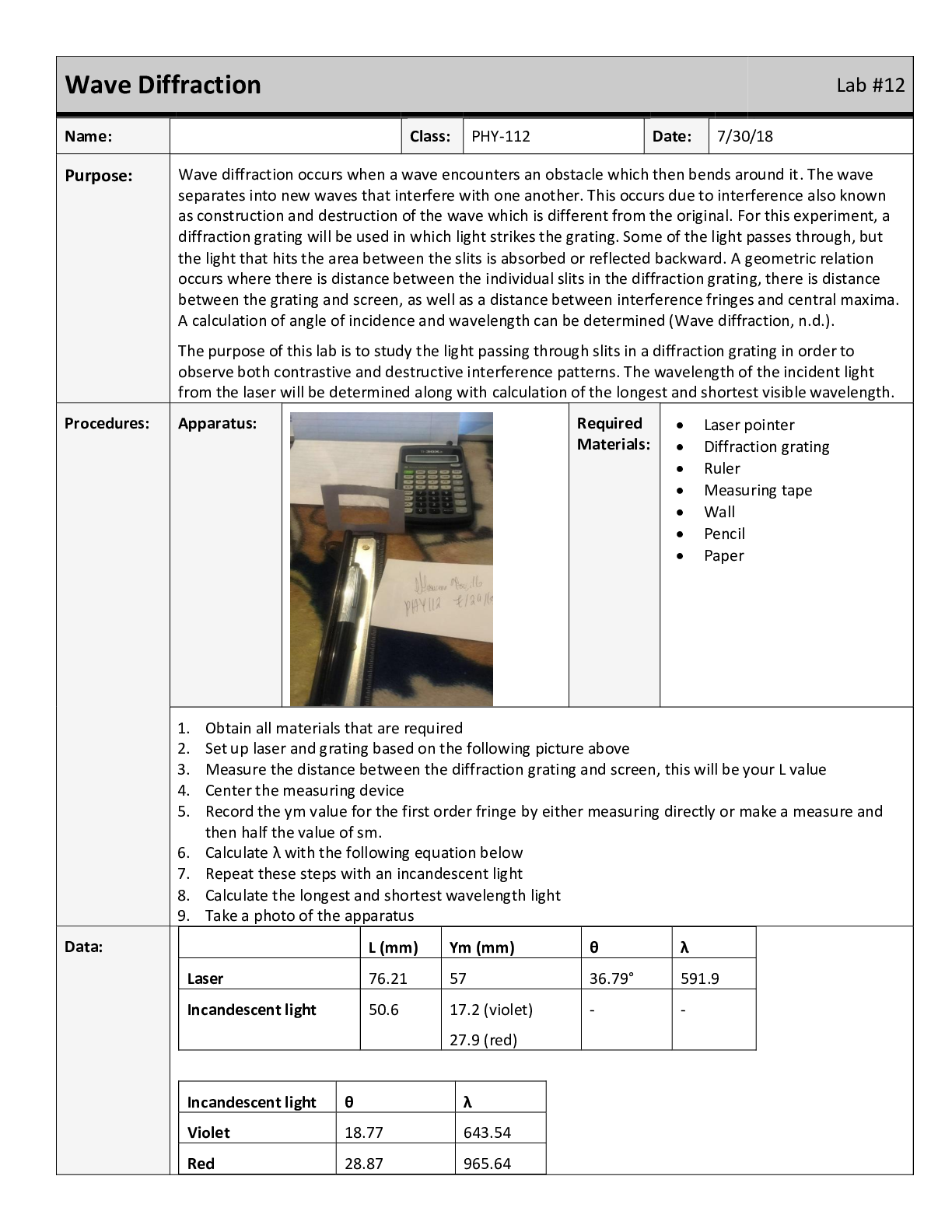

.png)

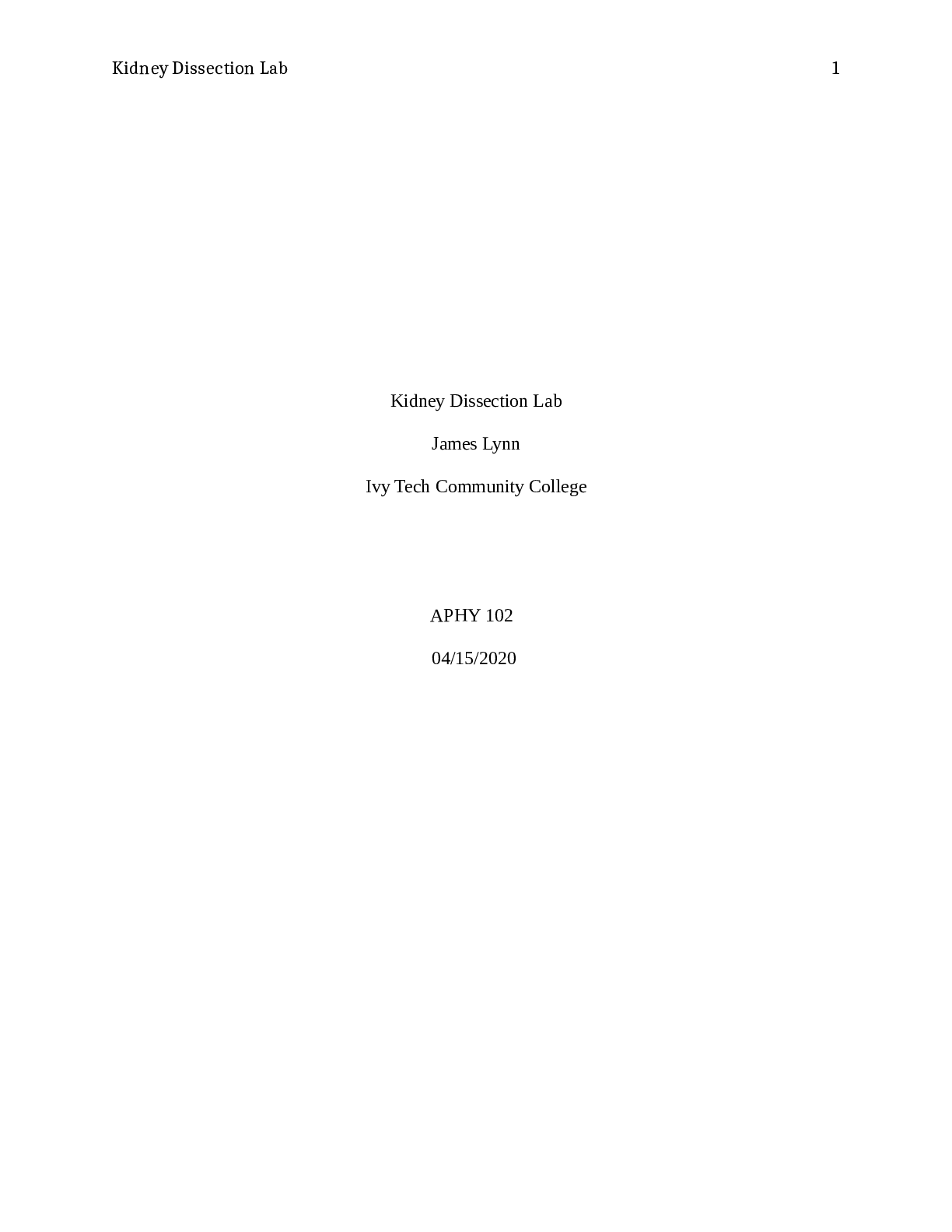



.png)

